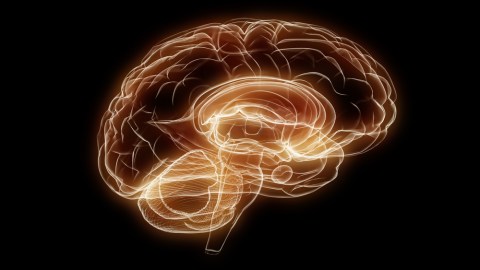Enhancing Your Brain May Mean Shutting Parts of It Down

Enhancing your brain’s cognitive abilities is assumed to mean getting more out of it, like feeding more electricity into a motor so it will run faster. The stereotype has been popularized by films like Lucy, based on the false premise that humans only use ten percent of their brain, and by experimental medical practices like transcranial direct-current stimulation (tDCS). The procedure has already become the stuff of lore thanks to remarkably successful experiments in which individuals exhibit an immediate cognitive boost after mild electric shocks are administered to the brain.
In an experiment, subjects were asked to solve a puzzle called the “nine dot” problem, a task that requires creativity since participants must connect three rows of three dots using four straight lines without lifting a pen or retracing lines.
“None of them could solve it before stimulation. When 29 subjects were exposed to ‘sham’ stimulation—electrodes emplaced without any current to test for placebo effects—they were still at a loss. With the current switched on, however, some 40 percent—14 of 33 participants—worked their way through the puzzle successfully.”
Contrary to popular myth, tDCS relies on temporarily shutting down certain neural networks as much as it does souping up the brain. In the “nine dot” experiment, electrical current diminished activity in parts of the left hemisphere involved with sensory input, memory, and language while increasing activity in the right hemisphere. In fact, across the board neural stimulation is a recipe for disaster. At best, you would be hungrier and consumed by sexual desire. At worst, you would experience what experts call “excitotoxicity,” a state in which massive brain damage is likely to occur as brain circuits blow out, similar to having a stroke.
Just as Shakespeare’s Prince Hamlet is more often bedeviled by his own thoughts, enhancing your brain might one day mean shutting parts of it down, not getting it to fire on all cylinders. In his Big Think interview, Johns Hopkins neuroscientist David Linden explains that the construction and behavior of the brain is “a freaking mess.”
Read more at Scientific American
Photo credit: Shutterstock





